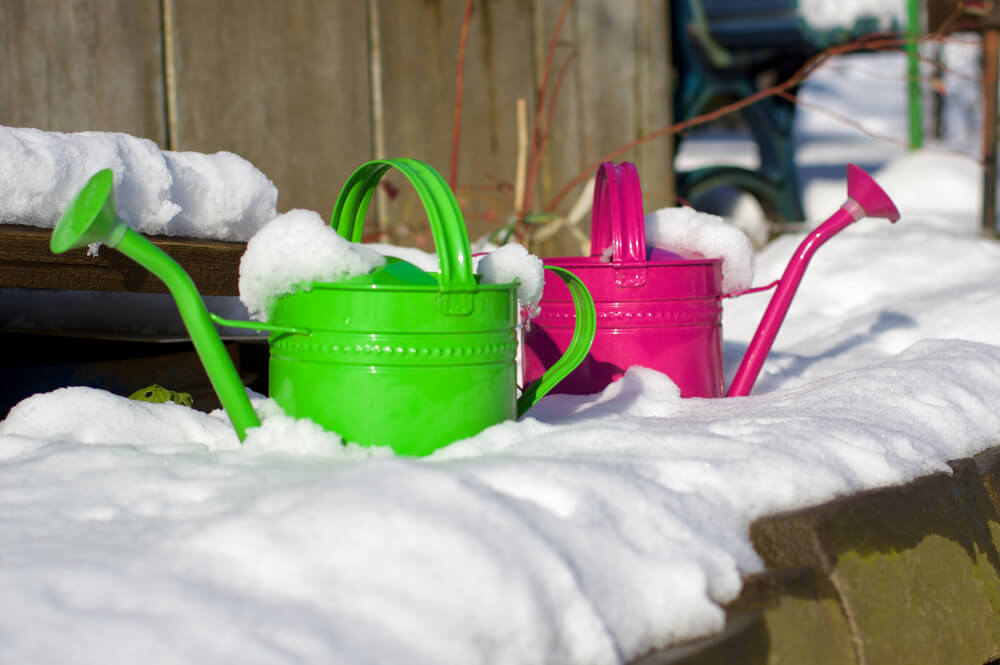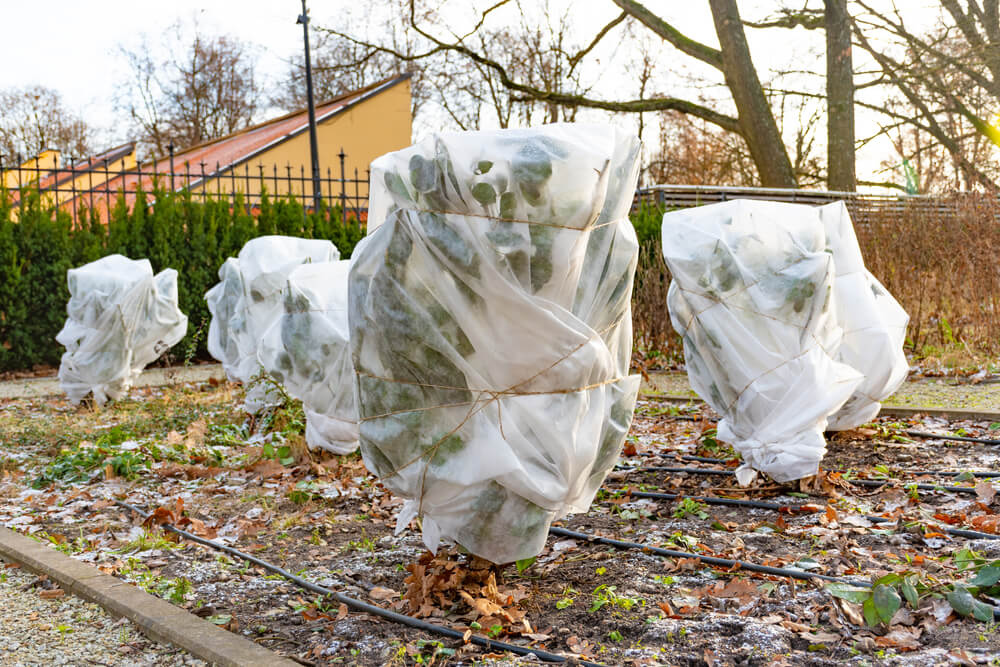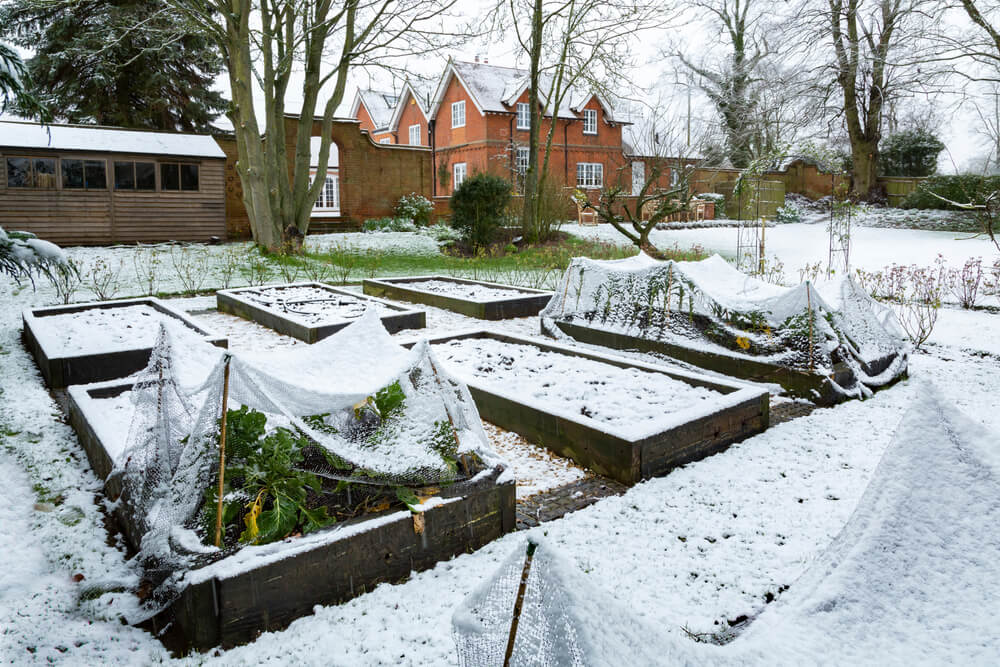Every season has a specific gardening purpose. Winter is not a popular garden-friendly season. However, it gives your garden a much-needed break from its natural cycle. This essential break allows your garden to stay alive, saving nutrients and energy for the spring.
There are still plenty of things you can do when it comes to gardening in the winter. We have come up with a simple list of 6 essential winter gardening tasks that will save you effort in the long run and will make you fully enjoy the garden when the good weather returns.
Evaluate Your Landscape
Getting to know your existing landscape will help you to decide what, if anything, to keep and what to get rid of. So grab your phone or a notebook to take your notes and walk your yard answering these questions:
What do you want to achieve? What do you want your garden to look like? Think about which plants were successes and which ones were not. Are there new plants you want to try? Now is the time to reconsider underperforming plants and find out if a better variety exists for your location. Write it all down and make a sketch of your thoughts if possible to visualize your final goal. You can share this image with a trusted landscaper of your choice.
Get Rid Of The Ugly
The key to avoiding infections in your garden is to eliminate the diseased plants, clean up rotten and dry plants, and most importantly control weeds. With the arrival of the cold, there are many plants that dry up or rot. In addition to looking messy, diseased plants are a source of infections and fungi, so eliminating them should be a priority.
On the other hand, getting rid of weeds in the garden is crucial. Its presence not only steals nutrients from our plants, but it also serves as a shelter for the presence of pests and diseases. For this reason, and even if it is cold, we will have to dedicate time to tear them out and place them in the trash. Removing invasive plants completely is the only way to prevent those plants from sprouting all over again and disrupting next year’s crop. You can easily hire a local landscaper or gardener from HomeStars to get this simple yet essential task done in no time!
Mind Your Roots & Mulch Perennials
It is important to check if your plants and their roots are well protected. Resist the urge to cut back your perennial flowering plants, the mulching technique can help soil protection and therefore their roots from frost. Although mulching is a fall activity, now is still a good time to do it.
Mulching in winter has many benefits such as reducing water loss, soil protection from erosion, and inhibiting weeds to grow. Also, adding a thick layer of mulch to the soil surface helps regulate soil temperatures and moisture and ease the transition into winter. A thick layer of mulch around root vegetables left in the garden for your fall and winter harvest can also buffer against hard frosts and prolong your crop. The best part is that as the mulch breaks down it incorporates fresh organic material into your soil.
Enrich The Soil
Cold, frost, and snow tend to compact the ground, and that not only greatly prevents the correct growth of plants but also usually causes the impoverishment of soil nutrients. For this reason, it is important to apply an organic fertilizer to the soil, such as compost, before the arrival of spring.
Winter composting before the snowfall is a perfect time. You can add soil amendments like manure, or organic fertilizers such as bone meal, kelp, and rock phosphate. Adding nutrients at this time of year gives them time to start breaking down, enriching your soil, and becoming biologically active, plus you’ll have done some of the work when the spring hits. Once the compost is distributed, mulch your yard to keep the rain out from washing the amendments below the active root zone. Remove the mulch in early spring, before the plants wake up, and improve the soil by adding some organic matter in advance of new planting.
Protect Your Sprinkling System
Achieving nice green lawns in summer requires having our sprinkling system at full capacity. This is why it is advisable to keep it properly protected during the winter. When water freezes, it expands, and this can cause problems for sprinkler systems like frozen pipes or water leaks.
You can book a professional for winterization service here, but In case frosts arrive before your winterization appointment, we recommend you take the following actions to protect your sprinkler system:
- Switch off your water supply to the sprinkling system
- Drain the water
- Cover your pipes with foam to insulate them and keep them from freezing
- Turn off any timer, If your sprinkler system is fitted with it
Sharpen Your Garden Tools
Although most gardeners know they should keep tools clean and well-oiled throughout the year, it’s difficult to keep up with this task when gardening is in full swing. These months of inactivity give us a place to clean up and see if the time has come to change our basic gardening tools. To clean up your garden tools, begin by washing tools to remove dirt and debris. If rust is present, remove it with sandpaper or a wire brush. Sharpen hoes and shovels with a basic mill file. Finally, rub the surfaces of your tools with an oiled rag coated in light machine oil. This will help seal the metal from oxygen and extend your tools’ lives for another year.
These 6 tasks taken now, will not only help your spring and summer run more smoothly, but they can also improve your yields over the long term. You can easily hire a gardener or professional landscaper on HomeStars to make winter tasks for your garden easier so you can enjoy the outdoors next spring. Submit a quote request to get in touch with a verified pro and get started on your winter gardening checklist today!!


